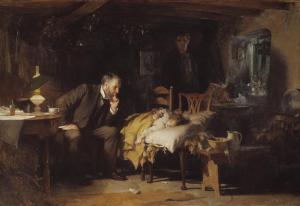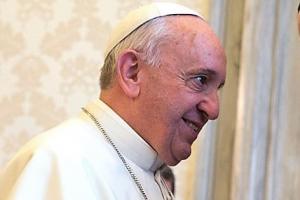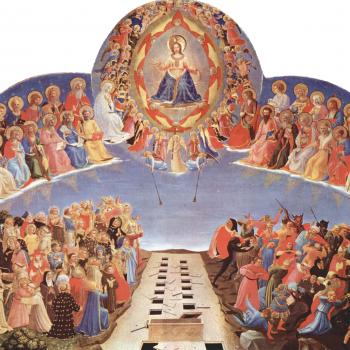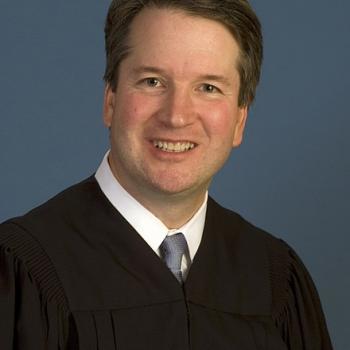As of this writing, 23-month-old Alfie Evans is still alive. Let’s review where we are to this point.
Alfie was “admitted to Alder Hey Children’s Hospital after suffering seizures” on December 14, 2016. [1] He has what is called “a rare undiagnosed degenerative neurological condition….” [2] Alfie remained in the hospital for a year, at which point a dispute arose between Alfie’s parents and the hospital regarding Alfie’s treatment. The hospital wanted to remove Alfie from life support and the hospital “applied to the High Court to remove parental rights and withdraw ventilation.”
The hospital argued that “continuing life-support treatment would not be in Alfie’s best interests….” The parents disagreed with that assessment, and said they wanted to fly Alfie to Italy for treatment.
The hospital took the position that further treatment would be “unkind and inhumane” [3], and one of the doctors told the court that there was “’no hope’” for Alfie because he was “in a semi-vegetative state” due to his “degenerative neurological condition….” But the father insisted that the child was able to look him “’in the eye,’” and thereby express a desire for help.
The court ruled in favor of the hospital, saying that the medical evidence was such that further treatment would be futile. A number of appeals have proved unavailing. Strikingly, the courts have prohibited Alfie’s parents to take him to Italy for further treatment.
On April 18th of this year, Alfie’s father flew to Rome and met Pope Francis. He begged “the leader of the Catholic Church to save Alfie’s life.” This was followed up on the 23rd by a Tweet from the Holy Father, wherein he said, “Moved by the prayers and immense solidarity shown little Alfie Evans, I renew my appeal that the suffering of his parents may be heard and that their desire to seek new forms of treatment may be granted.” [4]
 That same day, Italy granted citizenship to Alfie, “in a bid to secure his ‘immediate’ transfer to Rome for treatment.” [5] In the announcement the Italian foreign ministry said that the “Italian government hopes that being an Italian citizen will allow the child immediate transfer to Italy.”
That same day, Italy granted citizenship to Alfie, “in a bid to secure his ‘immediate’ transfer to Rome for treatment.” [5] In the announcement the Italian foreign ministry said that the “Italian government hopes that being an Italian citizen will allow the child immediate transfer to Italy.”
Still, the United Kingdom courts refuse to allow Alfie’s parents to take him to Italy, even though he is now a citizen of that country. On the same day he was granted Italian citizenship, the doctors removed Alfie’s life support.
To the surprise of the doctors, Alfie was still breathing unassisted, nine hours later. [6] At one point, however, his parents “had to give him mouth to mouth resuscitation to keep him alive because his lips turned blue.” [7] Fortunately, he subsequently looked better.
The Catholic position on the value of Alfie’s life is well-known and obvious.
“’Human life is sacred because from its beginning it involves the creative action of God and it remains for ever in a special relationship with the Creator, who is its sole end. God alone is the Lord of life from its beginning until its end: no one can under any circumstance claim for himself the right directly to destroy an innocent human being.’” (Catechism of the Catholic Church (CCC), §2258) [8]
At the same time,
“Discontinuing medical procedures that are burdensome, dangerous, extraordinary, or disproportionate to the expected outcome can be legitimate; it is the refusal of ‘over-zealous’ treatment. Here one does not will to cause death; one’s inability to impede it is merely accepted. The decisions should be made by the patient if he is competent and able or, if not, by those legally entitled to act for the patient, whose reasonable will and legitimate interests must always be respected.” (CCC, §2278) [9]
Those of us without medical expertise are unable to render a particularly valuable opinion on whether the condition of Alfie Evans meets these criteria. Although the facts that his actual disease remains undiagnosed and that he has lived beyond expectations are sufficient to raise eyebrows, the extant medical opinion is that further medical treatment would serve no useful purpose.
But the ultimate decision is not for the doctors. Instead the decision should be made by those who are legally entitled to act for the patient. And while the hospital may have gained that legal entitlement through the court process, in order to properly assess this situation it is necessary to ask whether taking the decision away from the child’s parents was just.
“Authority does not derive its moral legitimacy from itself. It must not behave in a despotic manner, but must act for the common good as a ‘moral force based on freedom and a sense of responsibility’:
“A human law has the character of law to the extent that it accords with right reason, and thus derives from the eternal law. Insofar as it falls short of right reason it is said to be an unjust law, and thus has not so much the nature of law as of a kind of violence.” (CCC, §1902) [10]
 It has always been understood in Catholic teaching that it is the parents who have the primary right and responsibility of caring for their children. As Pope Leo XIII put it in his encyclical, Rerum Novarum,
It has always been understood in Catholic teaching that it is the parents who have the primary right and responsibility of caring for their children. As Pope Leo XIII put it in his encyclical, Rerum Novarum,
“…the family has at least equal rights with the State in the choice and pursuit of the things needful to its preservation and its just liberty. We say, ‘at least equal rights’; for, inasmuch as the domestic household is antecedent, as well in idea as in fact, to the gathering of men into a community, the family must necessarily have rights and duties which are prior to those of the community, and founded more immediately in nature. If the citizens, if the families on entering into association and fellowship, were to experience hindrance in a commonwealth instead of help, and were to find their rights attacked instead of being upheld, society would rightly be an object of detestation rather than of desire.
“The contention, then, that the civil government should at its option intrude into and exercise intimate control over the family and the household is a great and pernicious error….Paternal authority can be neither abolished nor absorbed by the State; for it has the same source as human life itself. ‘The child belongs to the father,’ and is, as it were, the continuation of the father’s personality; and speaking strictly, the child takes its place in civil society, not of its own right, but in its quality as member of the family in which it is born. And for the very reason that ‘the child belongs to the father’ it is, as St. Thomas Aquinas says, ‘before it attains the use of free will, under the power and the charge of its parents.’” (Rerum Novarum, §§13-14) [11]
It is the job of the parents of Alfie Evans to be his caretakers. There is nothing to indicate that they are in any way incompetent to fulfill their parental role. No one can doubt their love and devotion to Alfie, and their intense interest in his well-being.
It is true that they disagree with the medical professionals who have been treating their son, and want to try another option. But that is no reason to conclude that the state must now substitute its judgment for that of the parents. It is common for people to seek second medical opinions, and that is all they are looking for on behalf of their son. And it is no objection that the trip to Italy might prove dangerous for Alfie, because the doctors in the United Kingdom have already consigned him to death.
All of this is exacerbated by the fact that Alfie is now a citizen of Italy, and the courts of the United Kingdom have taken it upon themselves to prohibit him from disembarking for his own country. They are, in essence, keeping him a prisoner, even though he has committed no crime.
The actions of the United Kingdom regarding Alfie Evans are simply indefensible.
The icon of St. Joseph the Worker is by Daniel Nichols











